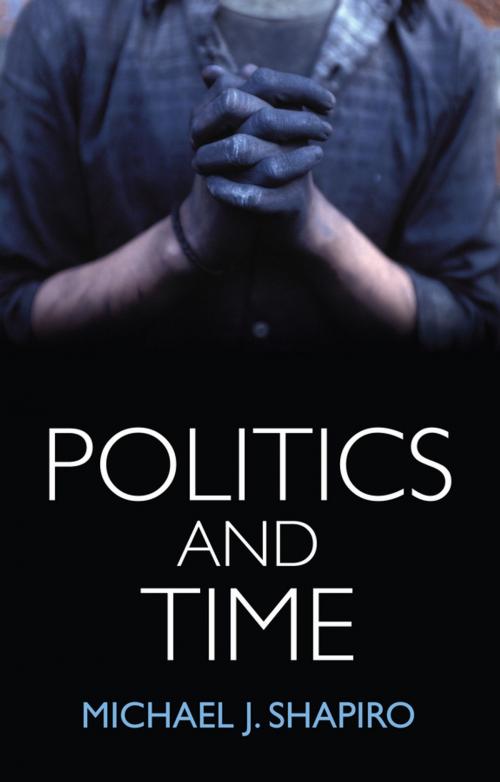| Author: | Michael J. Shapiro | ISBN: | 9781509507849 |
| Publisher: | Wiley | Publication: | September 6, 2016 |
| Imprint: | Polity | Language: | English |
| Author: | Michael J. Shapiro |
| ISBN: | 9781509507849 |
| Publisher: | Wiley |
| Publication: | September 6, 2016 |
| Imprint: | Polity |
| Language: | English |
Catastrophic events like the bombing of Hiroshima, Hurricane Katrina’s devastation of New Orleans, and drone strikes periodically achieve renewed political significance as subsequent developments summon them back to public awareness. But why and how do different conceptions of time inform and challenge these key events and the narratives they create?
In this book, Michael J. Shapiro provides an approach to politics and time that unsettles official collective histories by introducing analyses of lived experience articulated in cinematic, televisual, musical, and literary genres. His investigation is framed by questions of our responsibility to acknowledge those victims of violence and catastrophe who have failed to rise above the threshold of public recognition. Ultimately, by focusing on time as an active force shaping our conception of political life, we can deepen our understanding of complex political dynamics and improve the theories and methods we rely on to interpret them.
This bold and original book will be of interest to students and scholars of political theory, cultural studies and cinema studies looking for a new perspective on the temporal aspects of political life.
Catastrophic events like the bombing of Hiroshima, Hurricane Katrina’s devastation of New Orleans, and drone strikes periodically achieve renewed political significance as subsequent developments summon them back to public awareness. But why and how do different conceptions of time inform and challenge these key events and the narratives they create?
In this book, Michael J. Shapiro provides an approach to politics and time that unsettles official collective histories by introducing analyses of lived experience articulated in cinematic, televisual, musical, and literary genres. His investigation is framed by questions of our responsibility to acknowledge those victims of violence and catastrophe who have failed to rise above the threshold of public recognition. Ultimately, by focusing on time as an active force shaping our conception of political life, we can deepen our understanding of complex political dynamics and improve the theories and methods we rely on to interpret them.
This bold and original book will be of interest to students and scholars of political theory, cultural studies and cinema studies looking for a new perspective on the temporal aspects of political life.















